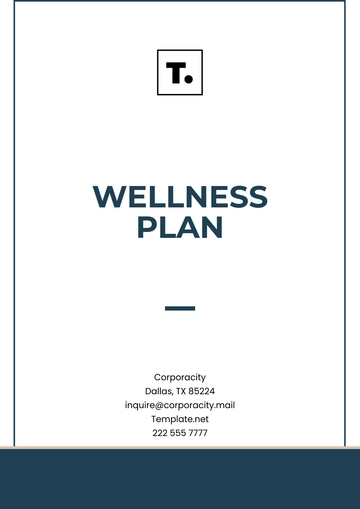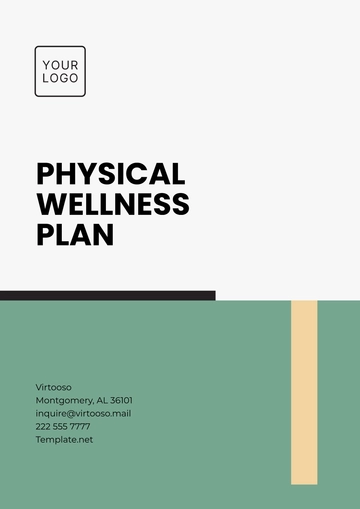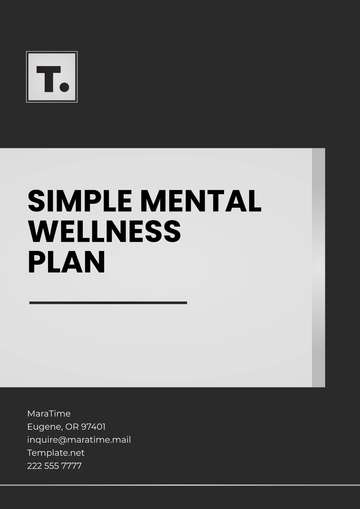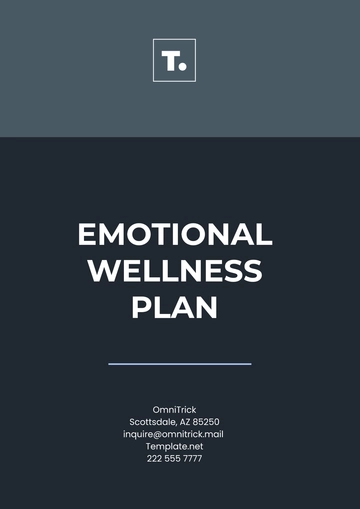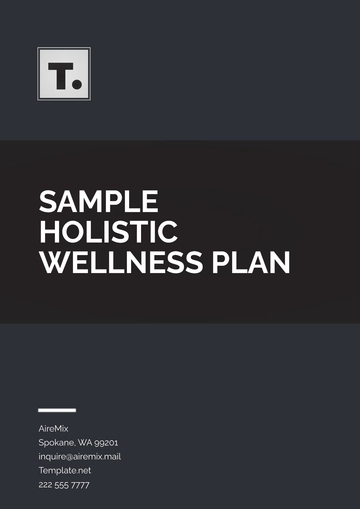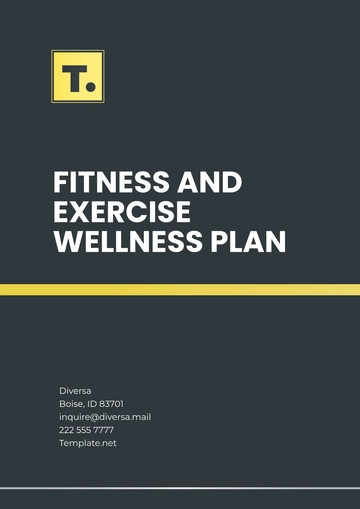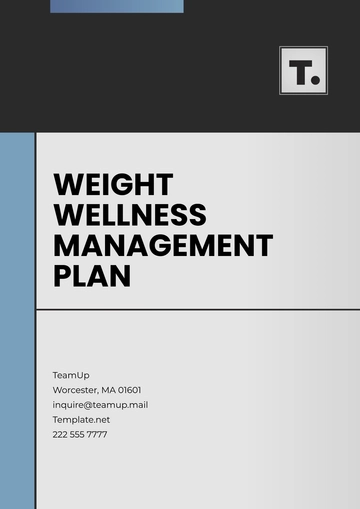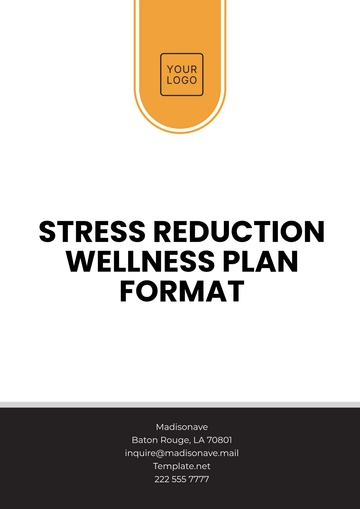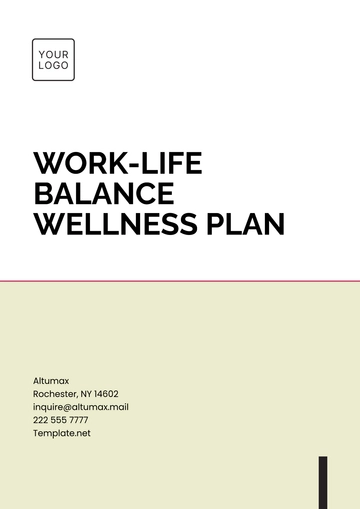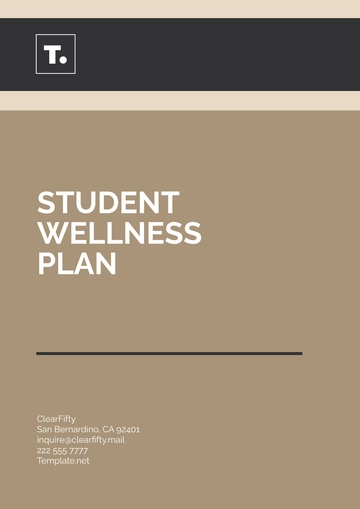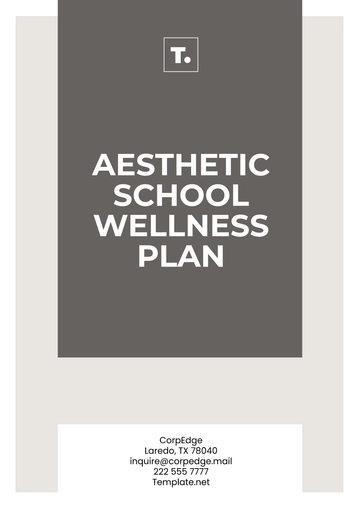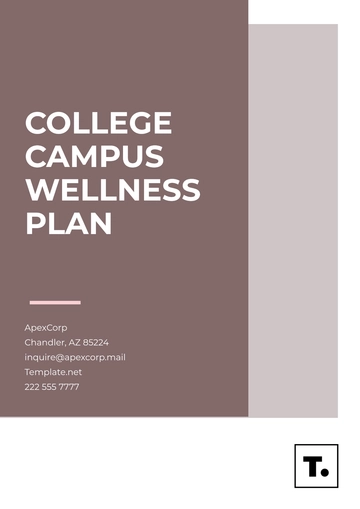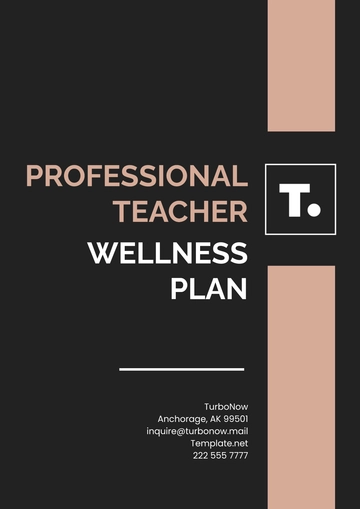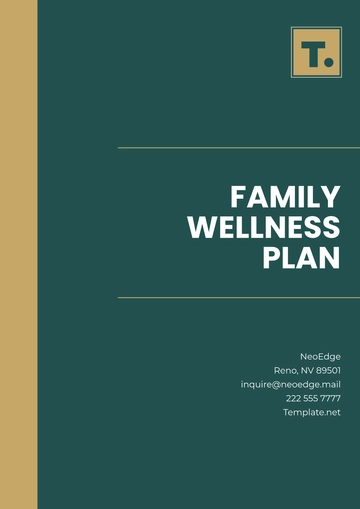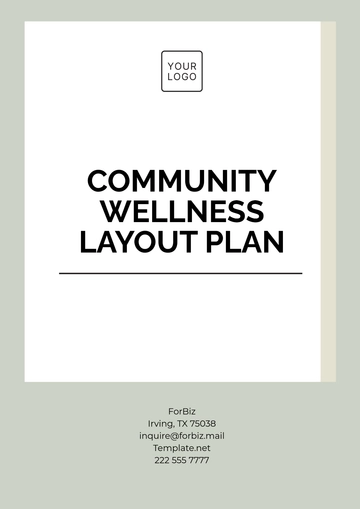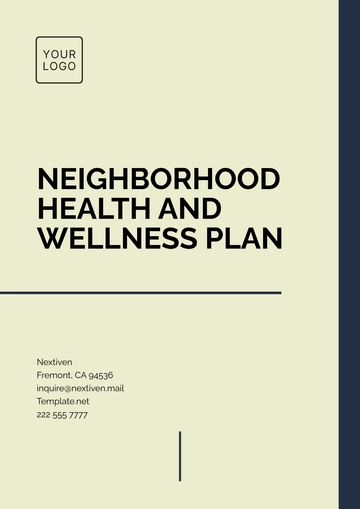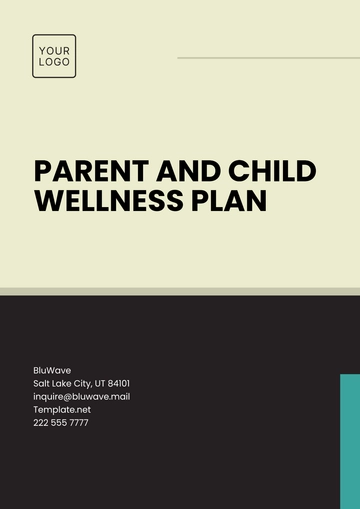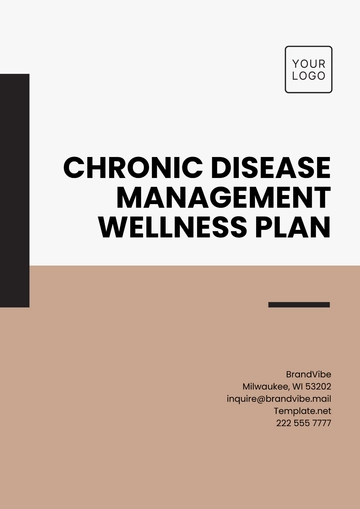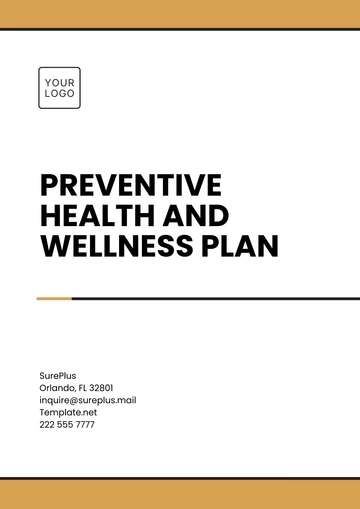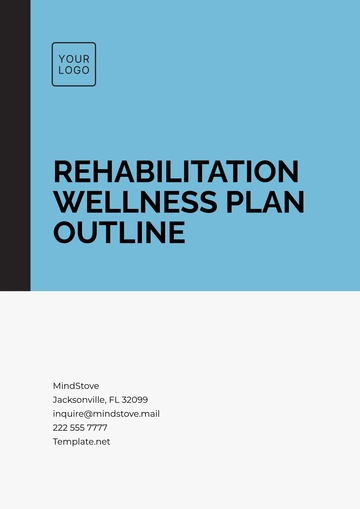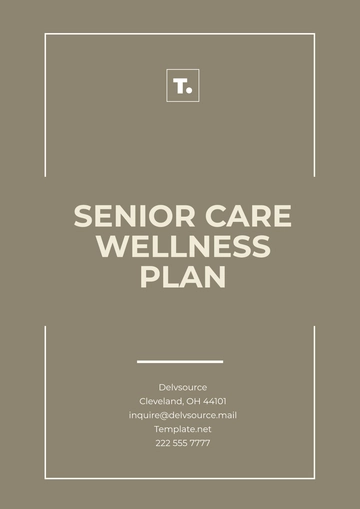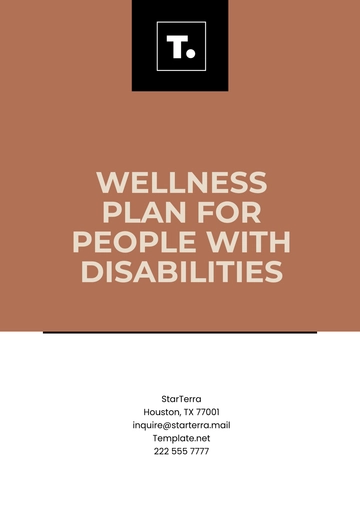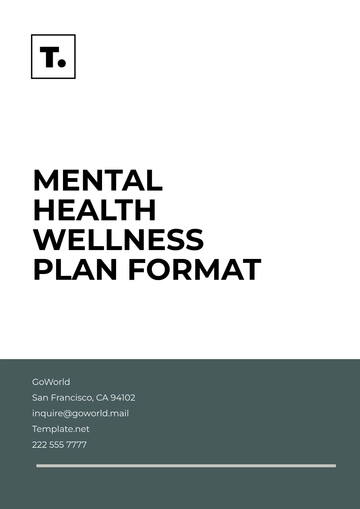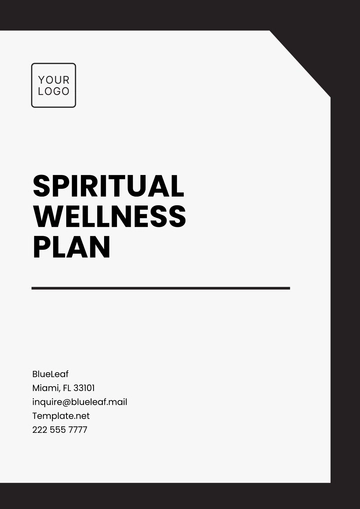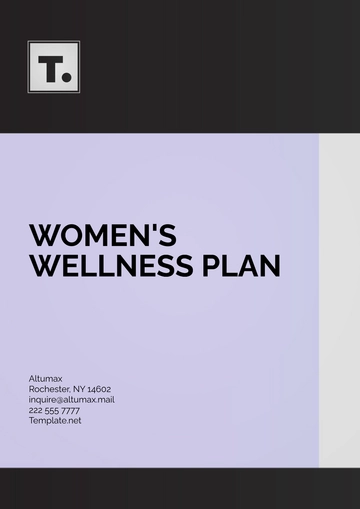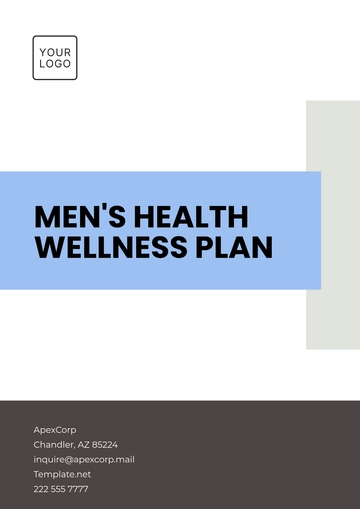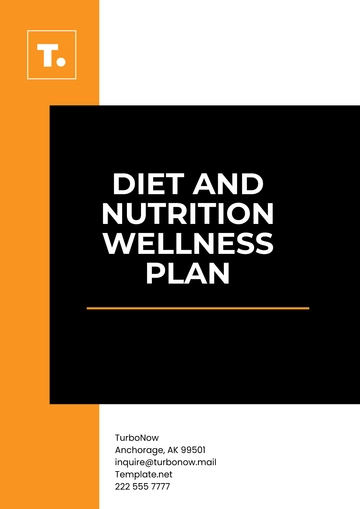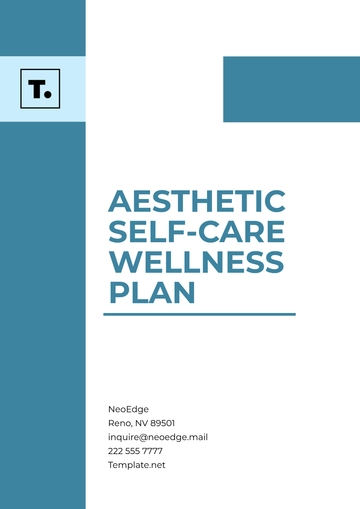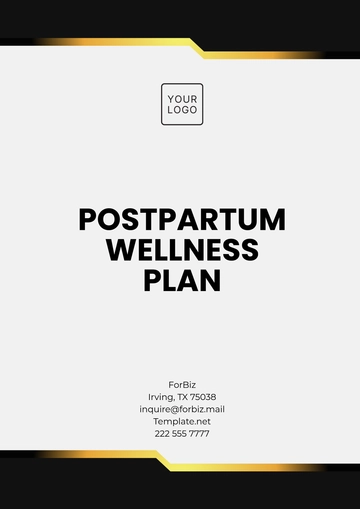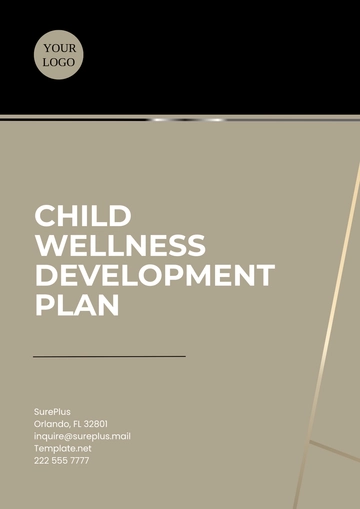Free Rehabilitation Wellness Plan Outline
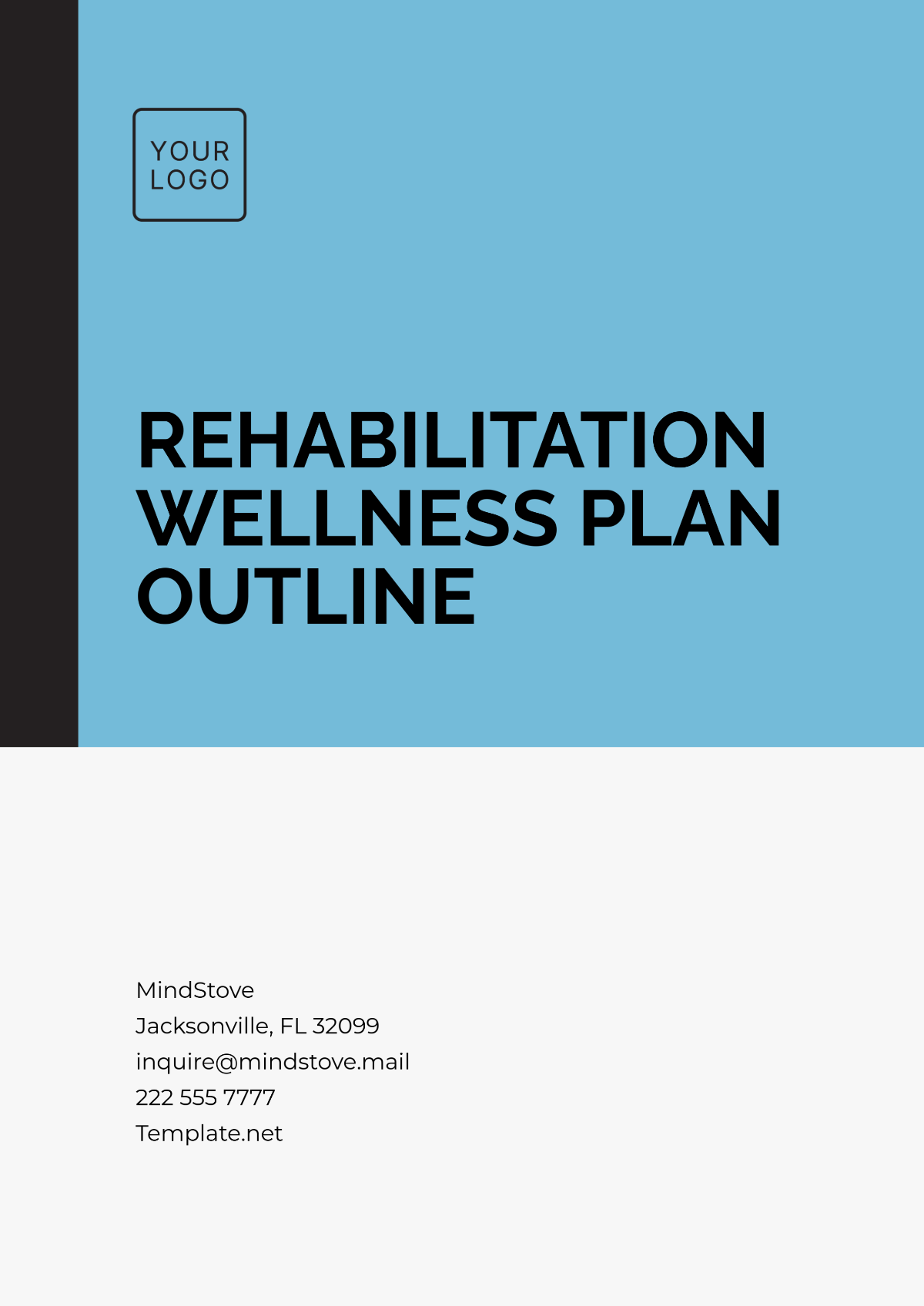
Prepared by: [Your Name]
Company: [Your Company Name]
Date: [Insert Date]
I. Introduction
The Rehabilitation Wellness Plan is designed to assist individuals in regaining their physical, mental, and emotional health following an injury, surgery, or chronic condition. The goal of this plan is to provide a comprehensive, holistic approach to recovery that integrates physical therapy, mental health support, and lifestyle modifications. This plan will support individuals in achieving optimal rehabilitation outcomes and returning to their pre-injury or pre-illness level of function, while also fostering long-term wellness.
II. Vision and Goals
A. Vision
To provide individuals with a structured, multidisciplinary approach to rehabilitation that promotes recovery, enhances quality of life, and supports overall wellness.
B. Goals
Support Physical Recovery: Help individuals regain strength, mobility, and function through targeted physical therapy and rehabilitation exercises.
Promote Mental and Emotional Wellness: Address the psychological aspects of recovery, including stress management, anxiety, and depression.
Encourage Long-Term Health and Wellness: Equip individuals with the tools and knowledge to maintain their health after rehabilitation, focusing on prevention and lifestyle adjustments.
Individualized Approach: Tailor rehabilitation plans to meet the unique needs of each individual based on their condition, goals, and recovery progress.
Foster Empowerment and Independence: Encourage individuals to take an active role in their recovery and empower them to make informed health decisions.
III. Key Areas of Focus and Strategies
A. Physical Rehabilitation
Strategies:
Physical Therapy (PT): Develop personalized physical therapy programs that focus on improving mobility, flexibility, strength, and coordination. This may include range-of-motion exercises, strength training, balance training, and joint protection techniques.
Occupational Therapy (OT): Provide support for individuals needing assistance with daily activities, such as dressing, cooking, and driving. Occupational therapy may also address fine motor skills and cognitive function.
Pain Management: Implement strategies to manage pain, such as therapeutic modalities (heat, cold, electrical stimulation), manual therapy, and appropriate medications or natural remedies.
Assistive Devices and Technology: Provide recommendations for the use of assistive devices, such as braces, wheelchairs, prosthetics, and mobility aids to enhance functionality and safety during recovery.
Progress Tracking and Adaptation: Continuously monitor recovery progress and adjust therapy protocols as needed to ensure consistent improvement.
B. Mental Health and Emotional Support
Strategies:
Counseling and Therapy: Offer individual or group therapy to help individuals cope with the psychological impact of injury or illness. Therapy may address issues such as depression, anxiety, and PTSD related to recovery.
Stress Management Techniques: Teach relaxation methods, such as deep breathing exercises, progressive muscle relaxation, and mindfulness, to reduce stress and improve mental health during the rehabilitation process.
Cognitive Behavioral Therapy (CBT): Integrate CBT techniques to help individuals manage negative thought patterns, boost motivation, and encourage a positive mindset throughout their recovery journey.
Support Groups: Organize peer support groups to provide emotional support and encouragement from others who are going through similar rehabilitation experiences.
Mind-Body Wellness: Encourage practices such as yoga, tai chi, or meditation to promote mental well-being and improve physical outcomes.
C. Nutritional Support and Wellness
Strategies:
Nutritional Counseling: Provide tailored dietary plans that support the rehabilitation process, focusing on nutrient-dense foods that promote healing and reduce inflammation (e.g., protein, vitamins, and antioxidants).
Weight Management: Help individuals achieve and maintain a healthy weight through balanced nutrition and exercise, especially for those recovering from joint or musculoskeletal injuries.
Hydration and Supplements: Educate individuals on the importance of staying hydrated and consider recommending supplements like omega-3 fatty acids, calcium, or vitamin D, based on the individual’s specific needs.
Meal Planning and Preparation: Provide resources and guidance on healthy meal planning and preparation to promote long-term health and wellness during and after rehabilitation.
D. Lifestyle Modifications and Prevention
Strategies:
Activity Modification: Educate individuals on how to modify their daily activities to avoid strain on their injury or condition, such as adjusting posture or using ergonomic tools.
Exercise Prescription: Encourage a structured exercise program designed to improve strength, endurance, and flexibility while preventing re-injury. Activities may include low-impact exercises, swimming, walking, or resistance training.
Post-Rehabilitation Maintenance: Develop long-term wellness strategies that support the individual’s ongoing health, including regular fitness activities, lifestyle changes, and proactive health check-ups.
Smoking Cessation and Alcohol Moderation: Offer resources for individuals to quit smoking or reduce alcohol consumption, as these can negatively affect rehabilitation outcomes and overall health.
E. Education and Empowerment
Strategies:
Health Education Workshops: Provide educational sessions on topics such as injury prevention, self-care techniques, healthy nutrition, and stress management during recovery.
Patient Education Materials: Develop and distribute easy-to-understand materials that outline the rehabilitation process, expected outcomes, and steps individuals can take to enhance their recovery.
Goal Setting and Tracking: Work with individuals to set realistic recovery goals and regularly track their progress, offering encouragement and adjustments as needed to stay on track.
Family and Caregiver Support: Educate family members and caregivers about the rehabilitation process so they can offer effective support and encouragement during recovery.
IV. Implementation Plan
A. Roles and Responsibilities
Physical and Occupational Therapists: Provide hands-on therapy, develop individualized rehabilitation plans, and monitor progress.
Mental Health Professionals: Offer therapy and counseling services, and help individuals manage the emotional aspects of recovery.
Dietitians/Nutritionists: Provide nutritional guidance and support, ensuring individuals are eating in a way that supports their recovery.
Wellness Coaches: Help individuals stay on track with their fitness, lifestyle, and rehabilitation goals, offering personalized advice and motivation.
Caregivers and Family: Support the individual by assisting with daily tasks, attending therapy sessions, and promoting adherence to the rehabilitation plan.
B. Timeline
Phase 1 (Weeks 1-4): Initial assessment, creation of personalized rehabilitation plan, and introduction to therapy and lifestyle changes. Begin pain management and stress management techniques.
Phase 2 (Weeks 5-8): Continue physical and occupational therapy, introduce fitness activities, and implement nutritional changes. Monitor progress and adjust therapy as necessary.
Phase 3 (Months 2-6): Focus on recovery maintenance, promoting independent living, and integrating new wellness habits into daily life. Provide ongoing mental health support.
Ongoing (6+ Months): Provide long-term follow-up support, monitor physical fitness levels, and ensure individuals maintain healthy behaviors to prevent future injury or illness.
V. Evaluation and Monitoring
A. Key Performance Indicators (KPIs)
Physical Function Recovery: Measure improvements in strength, flexibility, and mobility through periodic assessments.
Mental Health Improvements: Use mental health screening tools to track reductions in symptoms of anxiety, depression, and stress.
Adherence to Rehabilitation Plan: Monitor attendance at therapy sessions, participation in recommended exercises, and adherence to dietary and lifestyle changes.
Overall Satisfaction: Gather feedback from participants to assess satisfaction with the rehabilitation plan, support services, and progress made.
B. Methods of Evaluation
Patient Progress Assessments: Use standard rehabilitation tools and scales to assess changes in physical function, pain levels, and mental health status.
Feedback Surveys: Conduct surveys with individuals to evaluate their satisfaction with the rehabilitation process, therapist effectiveness, and progress toward personal goals.
Regular Check-ins: Schedule follow-up appointments to track progress, adjust the plan as needed, and offer continued support.
Goal Achievement Tracking: Set clear goals for recovery and monitor the achievement of these goals through progress reports.
VI. Sustainability Plan
Ongoing Support: Offer continuous check-ins and support services, including access to physical therapy, counseling, and wellness coaching, to ensure long-term recovery and wellness.
Community Partnerships: Partner with local fitness centers, healthcare providers, and wellness programs to provide additional resources and support for rehabilitation.
Funding and Resources: Seek grants, sponsorships, and community funding to ensure the continuation of rehabilitation services and programs.
Volunteer and Peer Support Programs: Engage community members and former patients to volunteer and offer peer support for others undergoing rehabilitation.
VII. Conclusion
The Rehabilitation Wellness Plan offers a comprehensive, multifaceted approach to recovery, addressing physical, mental, and emotional health to ensure individuals regain their independence and optimal function. Through personalized rehabilitation strategies, ongoing support, and a focus on lifestyle modifications, this plan aims to empower individuals to fully recover and maintain long-term wellness.
- 100% Customizable, free editor
- Access 1 Million+ Templates, photo’s & graphics
- Download or share as a template
- Click and replace photos, graphics, text, backgrounds
- Resize, crop, AI write & more
- Access advanced editor
You may also like
- Finance Plan
- Construction Plan
- Sales Plan
- Development Plan
- Career Plan
- Budget Plan
- HR Plan
- Education Plan
- Transition Plan
- Work Plan
- Training Plan
- Communication Plan
- Operation Plan
- Health And Safety Plan
- Strategy Plan
- Professional Development Plan
- Advertising Plan
- Risk Management Plan
- Restaurant Plan
- School Plan
- Nursing Home Patient Care Plan
- Nursing Care Plan
- Plan Event
- Startup Plan
- Social Media Plan
- Staffing Plan
- Annual Plan
- Content Plan
- Payment Plan
- Implementation Plan
- Hotel Plan
- Workout Plan
- Accounting Plan
- Campaign Plan
- Essay Plan
- 30 60 90 Day Plan
- Research Plan
- Recruitment Plan
- 90 Day Plan
- Quarterly Plan
- Emergency Plan
- 5 Year Plan
- Gym Plan
- Personal Plan
- IT and Software Plan
- Treatment Plan
- Real Estate Plan
- Law Firm Plan
- Healthcare Plan
- Improvement Plan
- Media Plan
- 5 Year Business Plan
- Learning Plan
- Marketing Campaign Plan
- Travel Agency Plan
- Cleaning Services Plan
- Interior Design Plan
- Performance Plan
- PR Plan
- Birth Plan
- Life Plan
- SEO Plan
- Disaster Recovery Plan
- Continuity Plan
- Launch Plan
- Legal Plan
- Behavior Plan
- Performance Improvement Plan
- Salon Plan
- Security Plan
- Security Management Plan
- Employee Development Plan
- Quality Plan
- Service Improvement Plan
- Growth Plan
- Incident Response Plan
- Basketball Plan
- Emergency Action Plan
- Product Launch Plan
- Spa Plan
- Employee Training Plan
- Data Analysis Plan
- Employee Action Plan
- Territory Plan
- Audit Plan
- Classroom Plan
- Activity Plan
- Parenting Plan
- Care Plan
- Project Execution Plan
- Exercise Plan
- Internship Plan
- Software Development Plan
- Continuous Improvement Plan
- Leave Plan
- 90 Day Sales Plan
- Advertising Agency Plan
- Employee Transition Plan
- Smart Action Plan
- Workplace Safety Plan
- Behavior Change Plan
- Contingency Plan
- Continuity of Operations Plan
- Health Plan
- Quality Control Plan
- Self Plan
- Sports Development Plan
- Change Management Plan
- Ecommerce Plan
- Personal Financial Plan
- Process Improvement Plan
- 30-60-90 Day Sales Plan
- Crisis Management Plan
- Engagement Plan
- Execution Plan
- Pandemic Plan
- Quality Assurance Plan
- Service Continuity Plan
- Agile Project Plan
- Fundraising Plan
- Job Transition Plan
- Asset Maintenance Plan
- Maintenance Plan
- Software Test Plan
- Staff Training and Development Plan
- 3 Year Plan
- Brand Activation Plan
- Release Plan
- Resource Plan
- Risk Mitigation Plan
- Teacher Plan
- 30 60 90 Day Plan for New Manager
- Food Safety Plan
- Food Truck Plan
- Hiring Plan
- Quality Management Plan
- Wellness Plan
- Behavior Intervention Plan
- Bonus Plan
- Investment Plan
- Maternity Leave Plan
- Pandemic Response Plan
- Succession Planning
- Coaching Plan
- Configuration Management Plan
- Remote Work Plan
- Self Care Plan
- Teaching Plan
- 100-Day Plan
- HACCP Plan
- Student Plan
- Sustainability Plan
- 30 60 90 Day Plan for Interview
- Access Plan
- Site Specific Safety Plan
